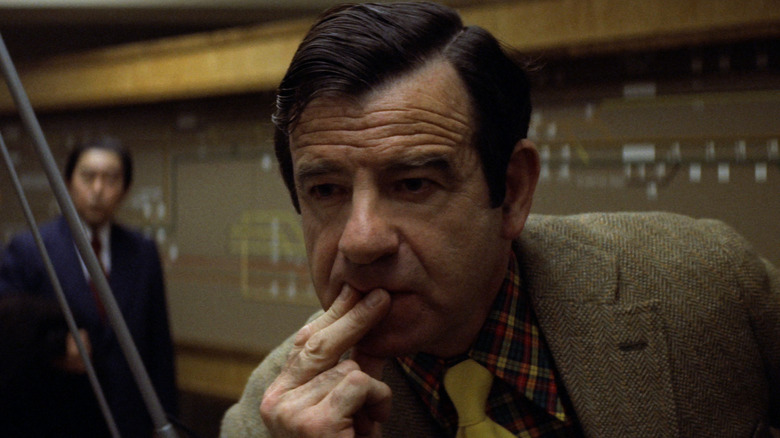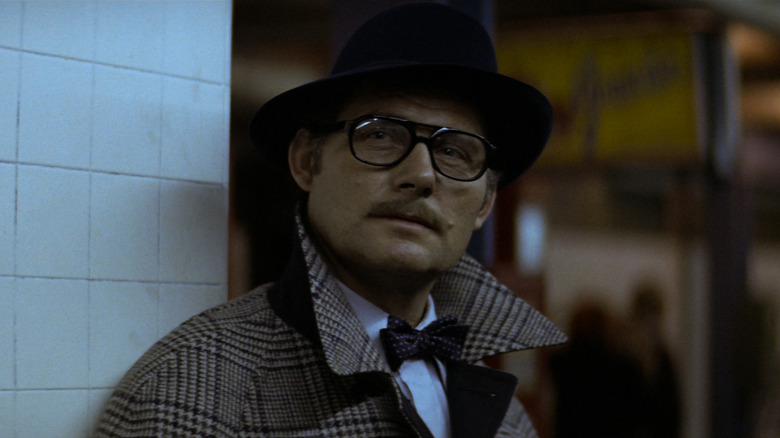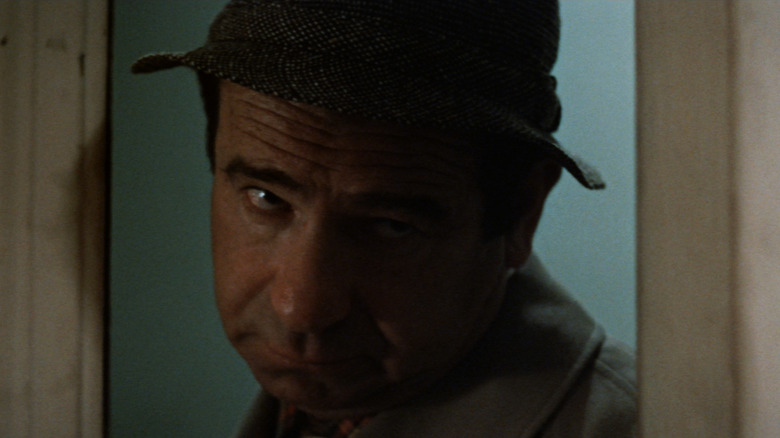The Daily Stream: The Taking Of Pelham One Two Three Finds Danger In The Ordinary
(Welcome to The Daily Stream, an ongoing series in which the /Film team shares what they've been watching, why it's worth checking out, and where you can stream it.)
The Movie: "The Taking of Pelham One Two Three" (1974)
Where You Can Stream It: HBO Max, Tubi
The Pitch: Four criminals board a downtown 6 train in New York City. They all use monikers based on different colors and are led by a former British Army Colonel with the pseudonym Mr. Blue (Robert Shaw). They round up the 18 passengers on the train and hold them, hostage, in the first car. Their demand? A million dollars to be delivered to the train within one hour. If the money does not make it to them in that time, they will execute one hostage every minute until they get it. Their only communication to the outside is the train radio that patches them to lieutenant Zachary Garber (Walter Matthau) with the city's transit police, who expected his day to be about as boring as it could be. As time ticks away, this group of criminals turns out to be far more unpredictable than you'd imagine.
The beauty of train movies
Few settings in movies are more appealing than a train. Because they are such ordinary modes of transportation, seeing them upended into a place of danger and tension is almost always invigorating. Nowhere is that more evident than in the New York City subway system that serves millions of people every single day. Whenever something tragic happens on one of their trains, it makes national news because of how far-reaching and important that system is. "The Taking of Pelham One Two Three" weaponizes this disruption of the ordinary probably better than any other train film.
Part of what makes it so effective is the accuracy of its setting. You could get on a 6 train today and take the same path as the train that gets hijacked in the film, from the 59th Street station down to the 23rd Street one. So many movies that are inextricably tied to the cities they are set in still take a tremendous amount of shortcuts in geography, favoring the idea of where they take place over reality. "The Taking of Pelham One Two Three" understands that the reality of New York City is far more dynamic than a version of the city you could imagine. It cuts away any barrier to entry or shred of artifice.
For a high-concept film like this, having that lack of a barrier is crucial to make the audience buy-in as immediately as humanly possible. All you want is to put them in the middle of the tension and hold them there until you can stretch that elastic band as far as it can go. There's no better way to do that than have it be as real as possible.
A New York character actor feast
Adding to the authenticity is the lack of 'dashing' movie stars in "The Taking of Pelham One Two Three." This is a film filled with craggy faces, pot bellies, and thick accents. The lieutenant isn't played by Robert Redford, Paul Newman, or Burt Reynolds. It's Walter Matthau. The '70s were a rare time in filmmaking when you could actually have character actors leading your film.
Alongside Matthau, you have a cavalcade of faces you imagine you could see every single day. You have Martin Balsam, Jerry Stiller, Héctor Elizondo, Lee Wallace, Tom Pedi, Doris Roberts, and Dick O'Neill. Even Robert Shaw, for all his put-togetherness, is still a broad man in his mid-to-late 40s with graying hair. I mean, the next year he would play Quint in "Jaws." For "The Taking of Pelham One Two Three" to feel like real New York City, you needed a cast like this to sell it, and every single person is perfectly cast.
Tony Scott remade "The Taking of Pelham One Two Three" in 2009 with stars and a huge budget. He had Denzel Washington in the Matthau role and a truly over-the-top John Travolta in the Shaw part. While it's a pretty fun time, it doesn't hold a candle to what director Joseph Sargent pulled off in 1974. He may not have the same name recognition as Tony Scott, but Sargent was one of those consummate journeyman filmmakers behind everything from the Burt Reynolds car film "White Lightning" to "Jaws: The Revenge." For a meat and potatoes story like this, a journeyman is exactly what was needed. The result is one of the best American thrillers of the '70s.


